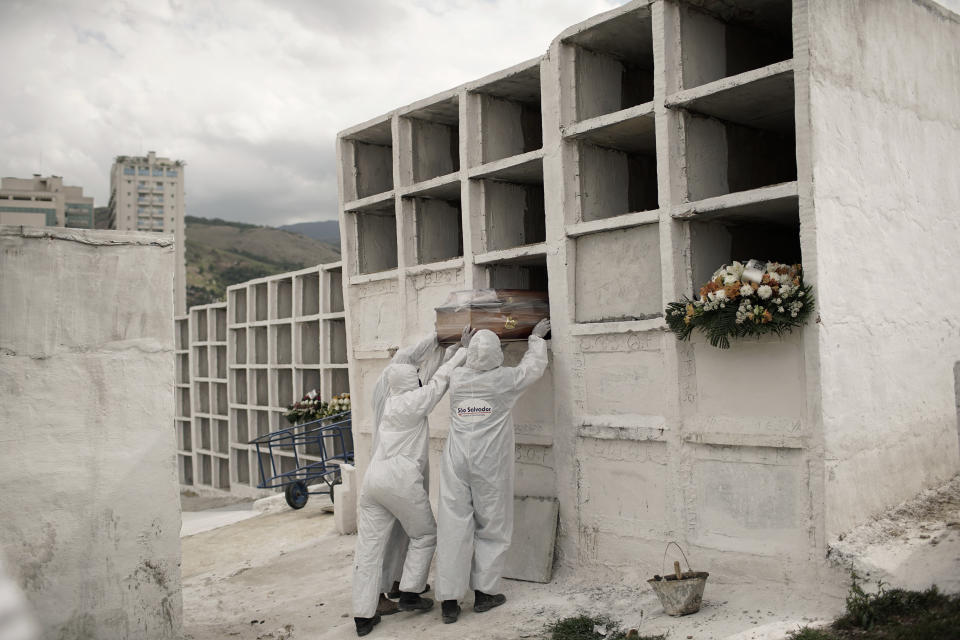Daunting prediction of true death toll as world hits grim coronavirus milestone
The global coronavirus death toll has reached the daunting milestone of one million just nine months into the pandemic, as surges in infections around the world continue to drive fatalities.
Deaths from coronavirus-related illnesses have doubled from half a million in just three months, led by fatalities in the United States, Brazil and India.
More than 5,400 people are dying around the world every 24 hours, according to Reuters calculations based on average deaths so far in September.

That equates to around 225 people per hour, or one person every 16 seconds. In the time it takes to watch a 90-minute soccer match, 340 people die on average.
The United States, Brazil and India account for nearly 45 per cent of all COVID-19 deaths globally, with the Latin American region alone responsible for more than a third of them.
Australia has contributed 882 deaths to the total.
“It’s not just a number. It’s human beings. It’s people we love,” said Dr Howard Markel, a professor of medical history at the University of Michigan.
Death toll is higher, WHO says
And while the grim milestone of one million deaths is unwelcome news, the World Health Organisation believes the world’s fate is far worse.
Mike Ryan, the head of WHO’s emergency response, believes the death toll is much higher as multiple countries face scrutiny over the transparency of their fatality recording.
"If anything, the numbers currently reported probably represent an underestimate of those individuals who have either contracted COVID-19 or died as a cause of it,” he told reporters on Monday (local time).

"When you count anything, you can't count it perfectly but I can assure you that the current numbers are likely an underestimate of the true toll of Covid.”
The stark warning comes days after Dr Ryan predicted the death toll will reach two million before a vaccine is available for widespread use.
Lawrence Gostin, a professor of global health law at Georgetown University, said we’re “only at the beginning of this”.
“We’re going to see many more weeks ahead of this pandemic than we’ve had behind us,” he said.
Countries struggle to keep up with fatalities
The high number of deaths has led to changes in traditional and religious burial rites around the world, with morgues and funeral businesses overwhelmed and loved ones often barred from bidding farewell in person.
In Israel, the custom of washing the bodies of Muslim deceased is not permitted, and instead of being shrouded in cloth, they must be wrapped in a plastic body bag. The Jewish tradition of Shiva where people go to the home of mourning relatives for seven days has also been disrupted.
In Italy, Catholics have been buried without funerals or a blessing from a priest, while in Iraq former militiamen dropped their guns to dig graves at a specially-created cemetery and learned how to conduct both Christian and Muslim burials.
In some parts of Indonesia, bereaved families have barged into hospitals to claim bodies of COVID-19 victims, fearing their relatives might not be given a burial in line with religious beliefs.
An indigenous group in the Ecuadorean Amazon took two police officers and a state official hostage, successfully demanding authorities return the body of a community leader for a traditional burial.
The United States, Indonesia, Bolivia, South Africa and Yemen have all had to work overtime to dig new graves and locate new burial sites as cemeteries fill up.
with Reuters and AP
Do you have a story tip? Email: newsroomau@yahoonews.com.
You can also follow us on Facebook, Instagram and Twitter and download the Yahoo News app from the App Store or Google Play.



